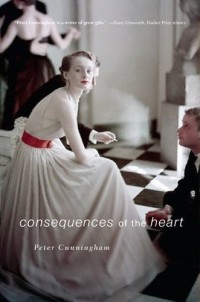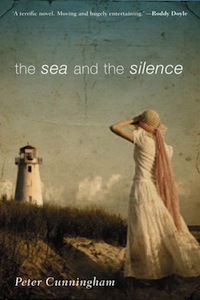The Snow Bees by Peter Cunningham
 Sunday, July 29, 2012 at 9:17AM
Sunday, July 29, 2012 at 9:17AM 
First published in Great Britain in 1988
Peter Cunningham is an extraordinary writer of moving family dramas, including the Monument novels, set in rural Ireland during the nineteenth and twentieth centuries. He has also written more than a half dozen thrillers, including The Snow Bees.
The Snow Bees is a standard story of drug cops battling drug lords with a slight twist: the man who infiltrates the cartel, Patrick Drake, is an accountant, not a cop. Drake volunteers for the assignment after his brother-in-law, Alan Ridgeway, a fellow accountant in the same prestigious London firm, is murdered at a winery he was auditing in France. Ridgeway had discovered that the winery was shipping more wine than it produced. He suspected that the winery was involved in illicit activity and that the accounting firm's founder, John Abelson, was involved.
In a related plotline, a DEA agent working undercover in Spain is murdered, but not before telling his brother, D.C. drug cop Joe Vendetti, that someone high in the DEA's hierarchy was working with the cartel. It is Vendetti who recruits Drake to infiltrate the cartel. The novel's other key player is drug lord Marcellino Adarraga, who lives in Columbia but dreams of freeing his homeland, Euskadi, and uses his profits to fund Basque terrorists.
Patrick manages to join the cartel with improbable ease, and the relationship he develops with Adarraga's beautiful lover is both predictable and unlikely. As was customary twenty years ago, the "good guys" in The Snow Bees indulge in a fair amount of overwrought hand-wringing about the evils of cocaine. Notwithstanding those concerns and despite the all-too-conventional plot, The Snow Bees tells a rousing story that features strong characters and tense moments. Cunningham writes with the same grace and style that make the Monument novels so memorable. The Snow Bees is far from Cunningham's best work -- it hasn't aged as well as his other novels -- but the quality of Cunningham's writing and the excitement that he manages to generate make it worth reading.
RECOMMENDED

